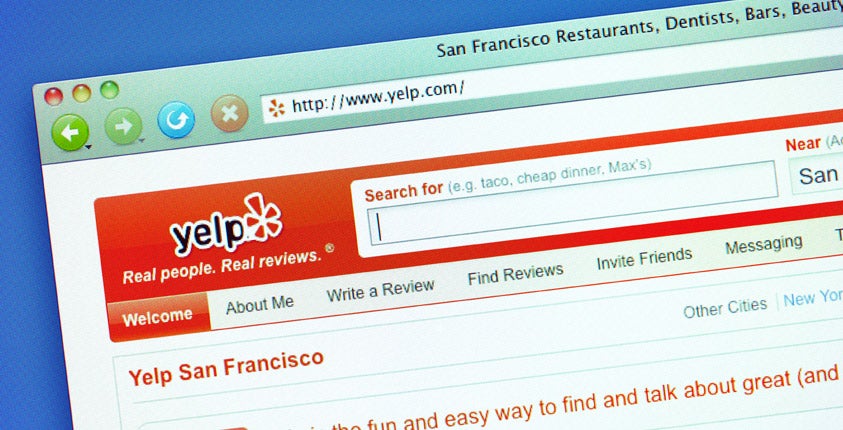Who’s Gonna Whack Yelp?

Yelp can (and should) be a helpful tool rather than an online cheap car salesman. Yet their business practices continue to suggest they proudly avoid the high road in exchange for revenues. Now, both businesses and consumers have reason to want the site to disappear.
Business owners are angry over a federal appeals court decision handed down recently that opens the door for Yelp to base its reviews on whether a business advertises with the online reviewer. The lawsuit accused Yelp of “extorting” businesses by making positive reviews more prominent for the owners who bought ads, thus boosting their overall ratings while business owners who refused to buy ads saw positive reviews disappear.
“Yelp’s manipulation of user reviews, assuming it occurred, was not wrongful use of economic fear,” the three-judge panel of the appeals court wrote in its decision. “As Yelp has the right to charge for legitimate advertising services, the threat of economic harm that Yelp leveraged is, at most, hard bargaining,” it wrote in its ruling.
More on social media: [eBook] Facebook- Turning Fans into Paying Customers
In disagreement, Judge Peter Doft of San Diego said Yelp is like “the modern day version of the Mafia going to stores and saying ‘You wanna not be bothered … you wanna not have incidents in your store? Pay us protection money’.”
For consumers, knowing that Yelp tampers with reviews for economic gain destroys the integrity of the community. Why should anyone bother to write positive or negative reviews if they are not going to be seen by others? How can consumers trust the reviews they do see when manipulation is baked into the site’s business model?
Now that Yelp is no longer useful to consumers, businesses have no reason to “pay for protection”. The latest court ruling suggests that Yelp has “whacked” itself.
Jen is this month's guest
on the Business Mentoring Show.
This article was originally published on MegaPlayer.com.
[latest_posts header=”More on marketing” limit=”” category=”8″]
